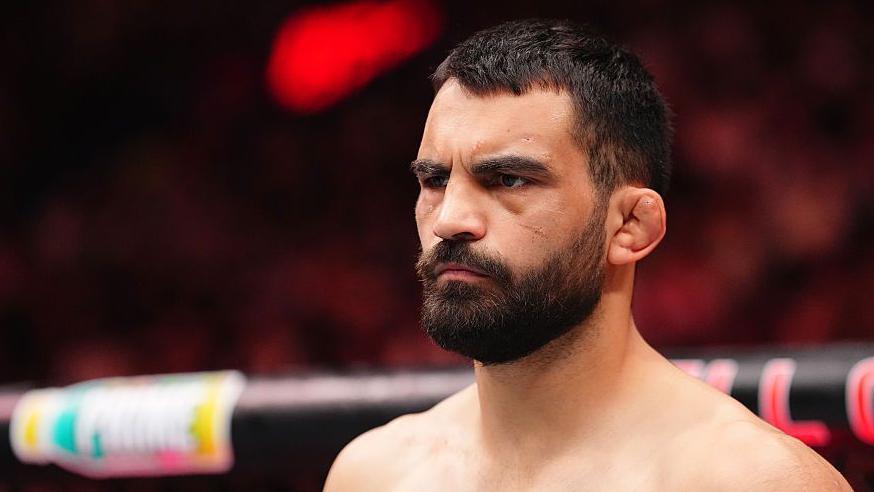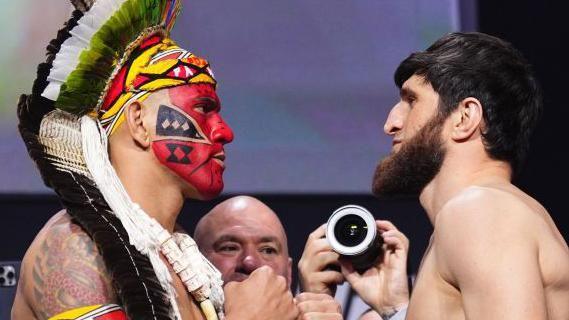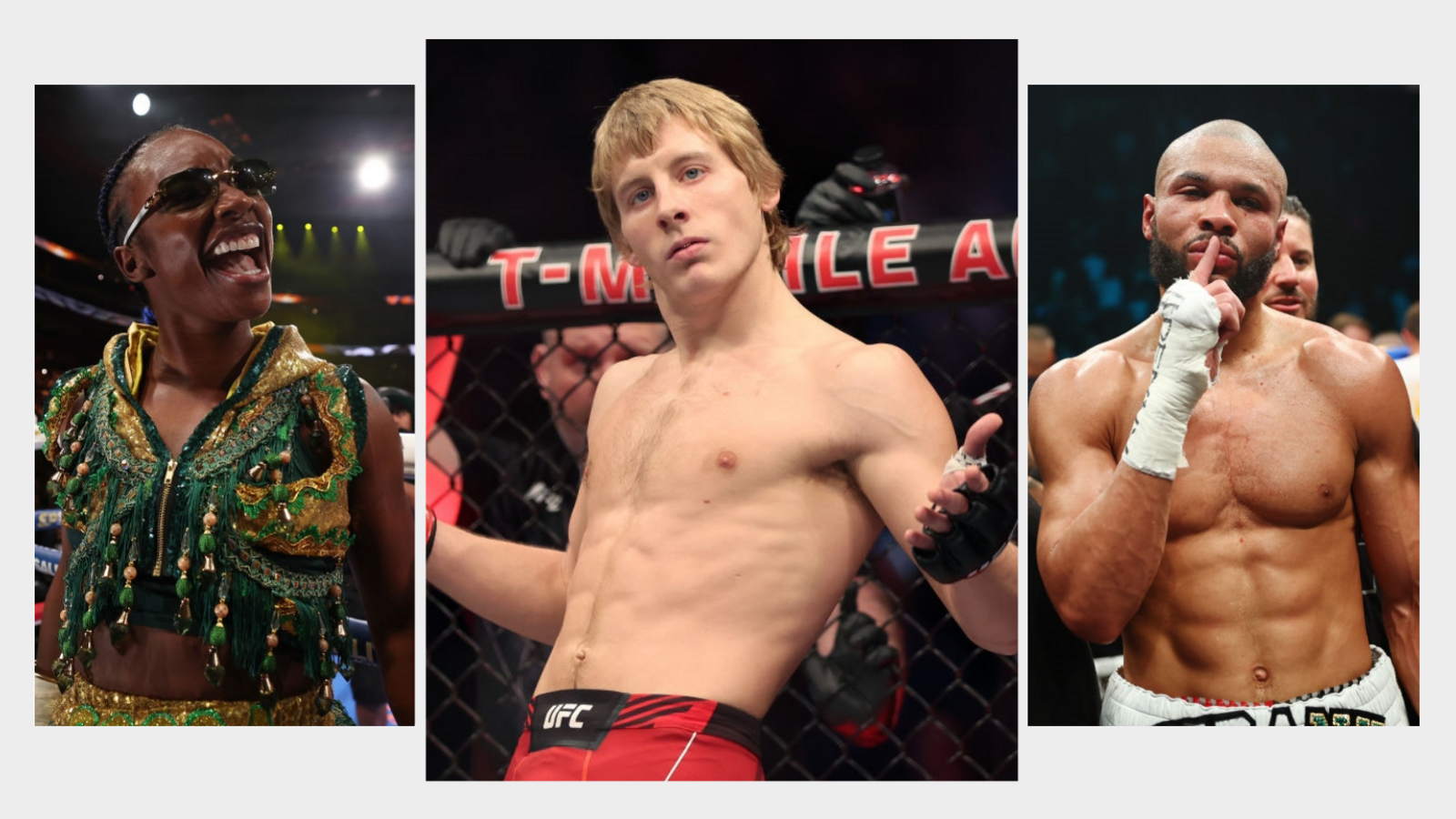Protecting presidents & fighting terrorists - from the army to UFC

Benoit Saint-Denis has won six of nine fights since his UFC debut in 2021
- Published
Benoit Saint-Denis provided protection for former French president Francois Hollande in 2016.
He has been at the forefront of counter-terrorism - rescuing hostages, stopping terrorist extractions and nullifying threats from groups like Boko Haram.
The 29-year-old experienced life-or-death situations during his five-year stint in the French military which finished in 2019, but the hardest moment of his life has not come during his time in the army - it arrived in the UFC.
Last March, Saint-Denis' five-fight winning streak in the promotion was ended by Dustin Poirier, and six months later he lost to Renato Moicano.
The defeats crushed Saint-Denis' momentum as he collapsed from the title picture.
Despite all his experience fighting for his country, he was not prepared for the attention that being an elite UFC fighter brings.
"All the 2024 year was the hardest," Saint-Denis tells BBC Sport.
"It's the pressure. The pressure of popularity, the ability to keep the same passion and the same fire for the fight, despite all the stuff that is surrounding huge fights."
"To keep concentrated on your mission and to win the fight."
- Published5 September
- Published6 September
After suffering the defeats by Poirier and Moicano, Saint-Denis revealed he had largely been training himself for the bouts, without the influence of a legitimate head coach.
This was different to his time in the military, where Saint-Denis learned how to follow orders impeccably.
"Being disciplined and being able to have a plan, and to respect it, and to keep close to it was important," explains Saint-Denis.
He was used to mentors in the French army who helped implement strategy in the most pressurised of situations, and this was what he needed in the UFC.
After choosing to work with Nicolas Ott, Saint-Denis returned to winning ways against Kyle Prepolec in May.
He next faces Brazilian lightweight Mauricio Ruffy at UFC Paris on Saturday, and heads into the bout at Accor Arena with a new outlook on fighting.
"Having a good head coach with the same human value as you and being disciplined. Loving what you do and getting a better fighter," says Saint-Denis.
"Together we are getting better, together as a team and working in directions that makes me a better fighter."
Saint-Denis, who was born in Nimes, southern France, formed part of the French Army Special Forces when he joined aged 18.
"Most of my work as a Special Force operator was in the sub-Saharan area. So Mali, Burkina Faso, Niger. I was mostly there against Boko Haram," says Saint-Denis.
Boko Haram is a militant Islamist group, designated as a terrorist organisation by the United Kingdom, which operates in countries such as Nigeria, Niger and Mali.
Saint-Denis' work largely involved working in counter-terrorism to combat the threat of groups like Boko Haram.
"When we are talking about counter-terrorism, it's going to be the arrest or the destruction of terrorist threats. Or stopping terrorist extractions in cities like Timbuktu, for example," Saint-Denis says.
His team were also tasked with protecting important members of the French government, like Hollande, during foreign visits.
Saint-Denis looks back on his time in the French military fondly.
"It was long and fatiguing and demanding, and after this I think I was a man - I was disciplined, and I knew how to work to get things done," he says.
"It was very adventurous, and I loved it."
Fighting terrorism and competing in the UFC are vastly different worlds with pressures of their own, but Saint-Denis does not have to dwell for long when deciding which is tougher.
"It depends on the occasion, but globally, I would say being a UFC fighter," he adds.
Related topics
- Published6 hours ago

- Published28 April 2024

More MMA from the BBC
- Published16 August
